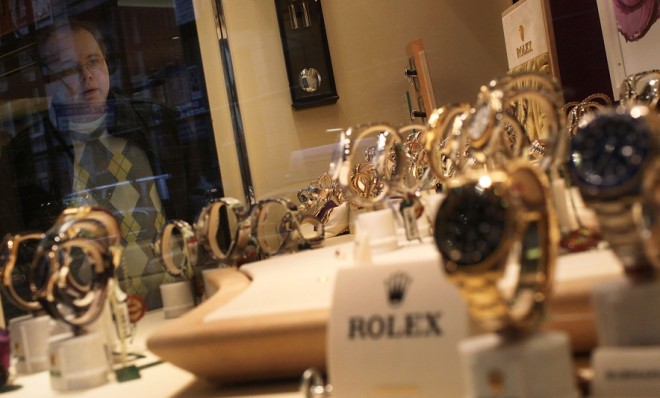More proof the rich won the Great Recession
Surprise! Median income is down to about where it was 25 years ago.


A free daily email with the biggest news stories of the day – and the best features from TheWeek.com
You are now subscribed
Your newsletter sign-up was successful
Today is the two-year anniversary of Occupy Wall Street, a movement born from outrage over bank bailouts, as well as a belief that the nation's richest had gotten richer following the Great Recession while everyone else got hammered.
Coincidentally, the Census Bureau is out Tuesday with its annual report on income and poverty in America, and the findings lend some credence to that argument.
After declining markedly every year since the financial crisis, median household income in the U.S. remained flat compared to last year at $51,017. (Technically median household income declined slightly, but by a statistically insignificant amount.)
The Week
Escape your echo chamber. Get the facts behind the news, plus analysis from multiple perspectives.

Sign up for The Week's Free Newsletters
From our morning news briefing to a weekly Good News Newsletter, get the best of The Week delivered directly to your inbox.
From our morning news briefing to a weekly Good News Newsletter, get the best of The Week delivered directly to your inbox.
Median household income (in thousands of dollars) | Create infographics
On the surface, that's a positive sign that the economy is finally starting to turn around.
Yet for those at the top, in the 95th percentile, household income has already begun to go up, according to the Census Bureau. Though income in the 95th percentile is still down from its peak in the mid-2000s, the uptick is striking when you consider that income for average households is only just beginning to bottom out.
95th percentile household income (in thousands of dollars) | Create infographics
A free daily email with the biggest news stories of the day – and the best features from TheWeek.com
Further, median household income is still down 8.3 percent from its pre-recession level in 2007. For those in the 95th percentile, household income is down just 2.5 percent. And as the Washington Post's Neil Irwin notes, median household income is actually a hair lower than it was in 1989, in inflation-adjusted terms, when the average household earned $51,681.
"Growth is not fast enough," Treasury Secretary Jacob Lew said before the report's release. "And the very definition of what it means to be middle class is being undercut by trends in our economy that must be addressed."
The divergence is more pronounced at the apex of the income ladder. The top one percent saw their income spike 31.4 percent between 2009 and 2012, according to a research paper released earlier this month by University of California economist Emmanuel Saez. With income for everyone else remaining relatively flat, that means the top one percent raked in 95 percent of the nation's total growth in wealth since the economic recovery began.
In a speech Monday, President Obama acknowledged there has been a rise in income inequality during the economic recovery, saying, "The trends that have taken hold over the past few decades of a winner-take-all economy, where a few do better and better, while everybody else just treads water or loses ground, those trends have been made worse by the recession."
But the chances that a gridlocked Congress will actually do anything about it are close to zero. Indeed, analysts are more concerned that the legislature will end up shooting the economy in the foot.
Jon Terbush is an associate editor at TheWeek.com covering politics, sports, and other things he finds interesting. He has previously written for Talking Points Memo, Raw Story, and Business Insider.
